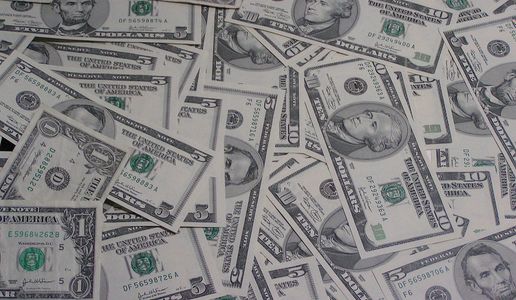Greenwald Publishes Article on Role of U.S. Dollar Post-Iran Deal
Michael B. Greenwald (Pardee ’07), Lecturer at the Frederick S. Pardee School of Global Studies at Boston University, recently published an article exploring the role of the U.S. dollar in the international economic order following the U.S. withdrawal from the Joint Comprehensive Plan of Action (JCPOA).
Greenwald’s article, entitled “The Future of the U.S. Dollar in a Post Iran Deal World,” was published by the Harvard Kennedy School’s Belfer Center for Science and International Affairs.
From the text of the article:
The European Union’s announcement in September 2018 that it would begin to create a special payments channel with Iran in response to the US withdrawal from the Joint Comprehensive Plan of Action (JCPOA) once again raises the question of the role of the U.S. Dollar (USD) in the international economic order. Under the surface of discussions of alternative payment mechanisms is the legitimate question of the negative impacts of American coercive economic statecraft on the USD status as the leading global reserve currency.
Some argue that if Iran shifted to Euro-denominated transactions, it could spark a broader shift within energy exporting countries that would eventually weaken the USD as the reserve currency as well as undermine the impact of future unilateral U.S. sanctions. William Rich, of the Council on Foreign Relations and a former Treasury diplomat in the United Arab Emirates, however, argues that the proposed Europe-Iran payment mechanism is “impractical because such a process would be inefficient and costly and could not guarantee European firms protection from U.S. sanctions, reputational damage, or Iranian misuse. It is most effective as public messaging to the Iranians that Europe is trying to resist American pressure.”
In fact, USD’s role as the global reserve currency is most affected by commercial and economic forces, not by politics. The use of sanctions has been a tremendous tool and there are certainly reasons why overuse of sanctions is problematic, but speeding up the decline of the USD as the global reserve currency is not a major concern. Most close observers are not worried about the Euro overtaking the USD. One necessary condition for a currency to be a global reserve currency is the political stability of the currency’s sponsor, which is not present in the EU at this time. Some observers are more concerned about the RMB (Chinese Yuan) than the Euro. Former Treasury Senior Official Adam Smith, emphasized that “though the USD is being challenged at the margins as yuan clearing and other localized trading processes pick up steam, its central role in global finance is currently unrivaled.”
Additionally, former Senior Treasury Sanctions official and nonresident Senior Fellow at the Atlantic Council Brian O’Toole noted that “while sanctions overuse may drive other countries to set up mechanisms free of US influence, any erosion of the USD global role depends on much larger economic factors, like liquidity and velocity, than any overuse of a US policy tool.”
Michael B. Greenwald is currently a Senior Vice President of Tiedemann Advisors and is responsible for working with clients and prospective clients and assisting with the Firm’s business development efforts. Michael is also the Senior Advisor to the President and CEO Fred Kempe of the Atlantic Council. Learn more about him here.
